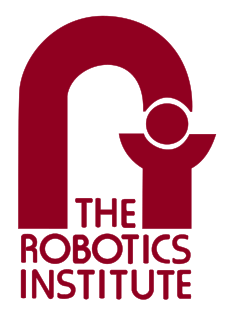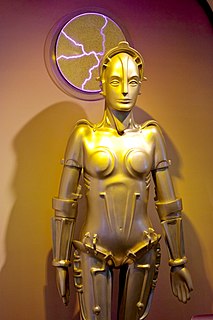Related Research Articles

Carnegie Mellon University (CMU) is a private research university based in Pittsburgh, Pennsylvania. Founded in 1900 by Andrew Carnegie as the Carnegie Technical Schools, the university became the Carnegie Institute of Technology in 1912 and began granting four-year degrees. In 1967, the Carnegie Institute of Technology merged with the Mellon Institute of Industrial Research, formerly a part of the University of Pittsburgh, to form Carnegie Mellon University. With its main campus located 3 miles (5 km) from Downtown Pittsburgh, Carnegie Mellon has grown into an international university with over a dozen degree-granting locations in six continents, including degree-granting campuses in Qatar and Silicon Valley, and more than 20 research partnerships.

The School of Computer Science (SCS) at Carnegie Mellon University in Pittsburgh, Pennsylvania, US is a school for computer science established in 1988. It has been consistently ranked among the top computer science programs over the decades. U.S. News & World Report currently ranks the graduate program as tied for 1st with Massachusetts Institute of Technology, Stanford University, and University of California, Berkeley. It is ranked 1st in the United States on Computer Science Open Rankings, which combines scores from multiple independent rankings.
The DARPA Grand Challenge is a prize competition for American autonomous vehicles, funded by the Defense Advanced Research Projects Agency, the most prominent research organization of the United States Department of Defense. Congress has authorized DARPA to award cash prizes to further DARPA's mission to sponsor revolutionary, high-payoff research that bridges the gap between fundamental discoveries and military use. The initial DARPA Grand Challenge was created to spur the development of technologies needed to create the first fully autonomous ground vehicles capable of completing a substantial off-road course within a limited time. The third event, the DARPA Urban Challenge extended the initial Challenge to autonomous operation in a mock urban environment. The most recent Challenge, the 2012 DARPA Robotics Challenge, focused on autonomous emergency-maintenance robots.
Hans Peter Moravec is an adjunct faculty member at the Robotics Institute of Carnegie Mellon University. He is known for his work on robotics, artificial intelligence, and writings on the impact of technology. Moravec also is a futurist with many of his publications and predictions focusing on transhumanism. Moravec developed techniques in computer vision for determining the region of interest (ROI) in a scene.

The Robotics Institute (RI) is a division of the School of Computer Science at Carnegie Mellon University in Pittsburgh, Pennsylvania, United States. A June 2014 article in Robotics Business Review magazine calls it "the world's best robotics research facility" and a "pacesetter in robotics research and education."
Qinetiq is a British multinational defence technology company headquartered in Farnborough, Hampshire. It is the world's 52nd-largest defence contractor measured by 2011 defence revenues, and the sixth-largest based in the UK.

The Robot Hall of Fame is an American hall of fame that recognises notable robots in various scientific fields and general society, as well as achievements in robotics technology. The organization was established in 2003 by the School of Computer Science at Carnegie Mellon University in Pittsburgh, Pennsylvania, as an acknowledgement of Pittsburgh's achievements in the field of robotics and with the aim of creating a broader awareness of the contributions of robotics in society. The idea for the Robot Hall of Fame was conceived by Carnegie Mellon School of Computer Science dean James H. Morris, who described it as a means of "honour[ing] robots that have served an actual or potentially useful function and demonstrated real skill, along with robots that entertain and those that have achieved worldwide fame in the context of fiction." The first induction ceremony was held at the Carnegie Science Center on November 10, 2003. Thirty robots – both real and fictional – have been inducted into the Robot Hall of Fame since its inception. An exhibit named Roboworld was later established at the Carnegie Science Center in June 2009, featuring a physical embodiment of the hall of fame.

Dragon Runner is a military robot built for urban combat. At 20 pounds it is light enough to be carried and thrown. The original project was funded by the United States Marine Corps Warfighting Laboratory in conjunction with Carnegie Mellon University. It was designed at Carnegie Mellon University while the electronics and thermoplastic shell is developed and made by QinetiQ, Inc. Early development was conducted by the United States Naval Research Laboratory, including initial design, production and field testing.

David S. Touretzky is a research professor in the Computer Science Department and the Center for the Neural Basis of Cognition at Carnegie Mellon University. He received a BA in Computer Science at Rutgers University in 1978, and earned a master's degree and a Ph.D. (1984) in Computer Science at Carnegie Mellon University. Touretzky has worked as an Internet activist in favor of freedom of speech, especially what he perceives as abuse of the legal system by government and private authorities. He is a notable critic of Scientology.
Cyveillance has a rich history of providing customer-centric threat intelligence services to protect the most critical assets of enterprises worldwide. Founded in 1997, Cyveillance delivers an open source intelligence-led approach to security through continuous, comprehensive monitoring and analysis of millions of online data sources to protect client information, infrastructure, and employees from physical and online threats.

Red Whittaker is a roboticist and research professor of robotics at Carnegie Mellon University. He led Tartan Racing to its first-place victory in the DARPA Grand Challenge (2007) Urban Challenge and brought Carnegie Mellon University the two million dollar prize. Previously, Whittaker also competed for the DARPA Grand Challenge placing second and third place simultaneously, in the Grand Challenge Races.
Foster-Miller, Inc., a wholly owned subsidiary of Qinetiq, is a United States-based military robotics manufacturer. Its two best-known products are its TALON robots and its LAST Armor.

Marvell Technology, Inc. is an American company, based in Delaware, which develops and produces semiconductors and related technology. Founded in 1995, the company had more than 6,000 employees as of 2013, and 10,000 patents worldwide and annual revenue of $2.9 billion (FY19). Its U.S. headquarters is located in Santa Clara, California.

Manuela Maria Veloso is the Head of J.P. Morgan AI Research & Herbert A. Simon University Professor in the School of Computer Science at Carnegie Mellon University, where she was previously Head of the Machine Learning Department. She served as president of Association for the Advancement of Artificial Intelligence (AAAI) until 2014, and the co-founder and a Past President of the RoboCup Federation. She is a fellow of AAAI, Institute of Electrical and Electronics Engineers (IEEE), American Association for the Advancement of Science (AAAS), and Association for Computing Machinery (ACM). She is an international expert in artificial intelligence and robotics.
The Modular Advanced Armed Robotic System (MAARS) is a robot that is being developed by Qinetiq. A member of the TALON family, it will be the successor to the armed SWORDS robot. It has a different, larger chassis than the SWORDS robot, so has little physically in common with the SWORDS and TALON

Anita Katherine Jones is an American computer scientist and former U.S. government official. She was Director, Defense Research and Engineering from 1993 to 1997.
Vencore, Inc. was a private defense contractor that serves the U.S. Intelligence Community, Department of Defense and other agencies. From 2010 to 2014, the company was named The SI Organization, Inc.. The SI provided full life cycle, mission-focused systems engineering and integration capabilities, according to its corporate website. Major locations include Chantilly (VA), Basking Ridge (NJ), Denver (CO), Laurel (MD), Los Angeles (CA), Red Bank (NJ), St. Louis (MO), and Valley Forge (PA). The company employed approximately 2,000 people. It is now part of Perspecta Inc.
Priya Narasimhan is a Professor of Electrical & Computer Engineering at Carnegie Mellon University in Pittsburgh, Pennsylvania. She is also the CEO and founder of YinzCam, a U.S.-based technology company that provides the mobile fan experience for a number of professional sports teams and leagues in the United States, Canada, Australia and New Zealand.
CubeRover is a class of planetary rover with a standardized modular format meant to accelerate the pace of space exploration. The idea is equivalent to that of the successful CubeSat format, with standardized off-the-shelf components and architecture to assemble small units that will be all compatible, modular, and inexpensive.
Advanced Robotics for Manufacturing (ARM), also known as ARM Institute, is a consortium created in 2017 through a Department of Defense grant won by Carnegie Mellon University. ARM is structured as a public-private partnership and the Manufacturing USA Institutes, a network of 14 institutes dedicated to advancing technologies used in manufacturing. ARM was the 14th institute created and focuses on funding innovations in robotics and workforce development.
References
- 1 2 "Company Overview of Automatika Inc". investing.businessweek.com. Retrieved 2013-11-26.
- ↑ "Automatika Inc". inknowvation.com. Retrieved 2013-11-26.
- ↑ "Remote-Controlled, Throwable Robots Developed at Carnegie Mellon in Conjunction with U.S. Marine Corps Are Being Sent to Iraq for Testing". cmu.edu. Archived from the original on 2016-03-04. Retrieved 2013-11-26.